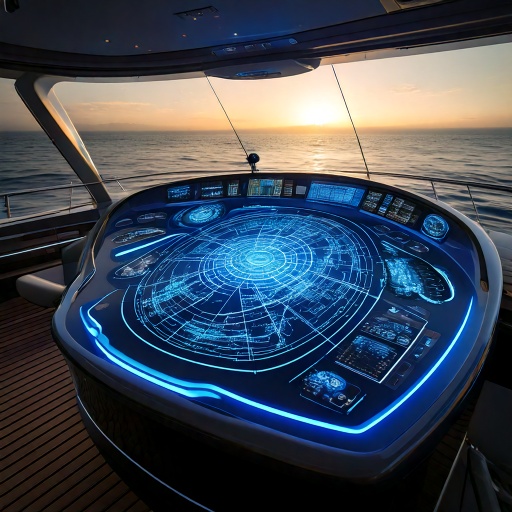Artificial Intelligence for Route Optimization: The Future of Navigation
Artificial Intelligence (AI) is revolutionizing the nautical sector, particularly in the realm of route optimization. This cutting-edge technology promises to radically transform the way yachts navigate, offering significant advantages in terms of efficiency, safety, and sustainability.
AI systems for route optimization analyze a wide range of real-time data, including:
- Weather conditions
- Ocean currents
- Maritime traffic
- Vehicle performance
Using advanced algorithms, these systems process the information to calculate the most efficient routes, considering factors such as fuel consumption, travel times, and safety.
Reduced Fuel Consumption: Route optimization can lead to a decrease in fuel consumption of up to 10-15%.
Lower Environmental Impact: The reduction in fuel consumption translates into a decrease in CO2 emissions, contributing to the sustainability goals of the nautical sector.
Enhanced Safety: AI systems can avoid adverse weather conditions and dangerous areas, significantly improving the safety of crew and passengers.
More Accurate ETA Predictions: AI improves the accuracy of estimated arrival times, optimizing port and logistics planning.
Dynamic Adaptation: AI systems continuously recalculate routes during the journey, adapting in real-time to changes in weather or maritime conditions.
Real-Time Monitoring: AI constantly tracks fuel consumption and vehicle performance, comparing them with predicted levels to ensure optimal efficiency.
Regulatory Integration: The systems ensure compliance with environmental regulations such as EEXI and CII, supporting the sustainability of the nautical sector.
The adoption of AI systems for route optimization is growing rapidly in the maritime sector. Major shipping companies have already implemented these technologies, achieving significant results in terms of efficiency and sustainability.
Artificial intelligence for route optimization represents a fundamental step towards a more sustainable and efficient future for the world of yachting and the maritime industry in general. As this technology continues to evolve, we can expect further improvements in navigation, leading to a safer, more efficient, and environmentally friendly travel experience.
